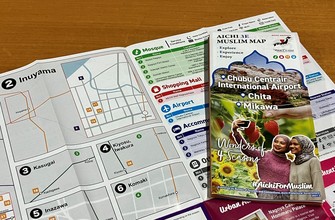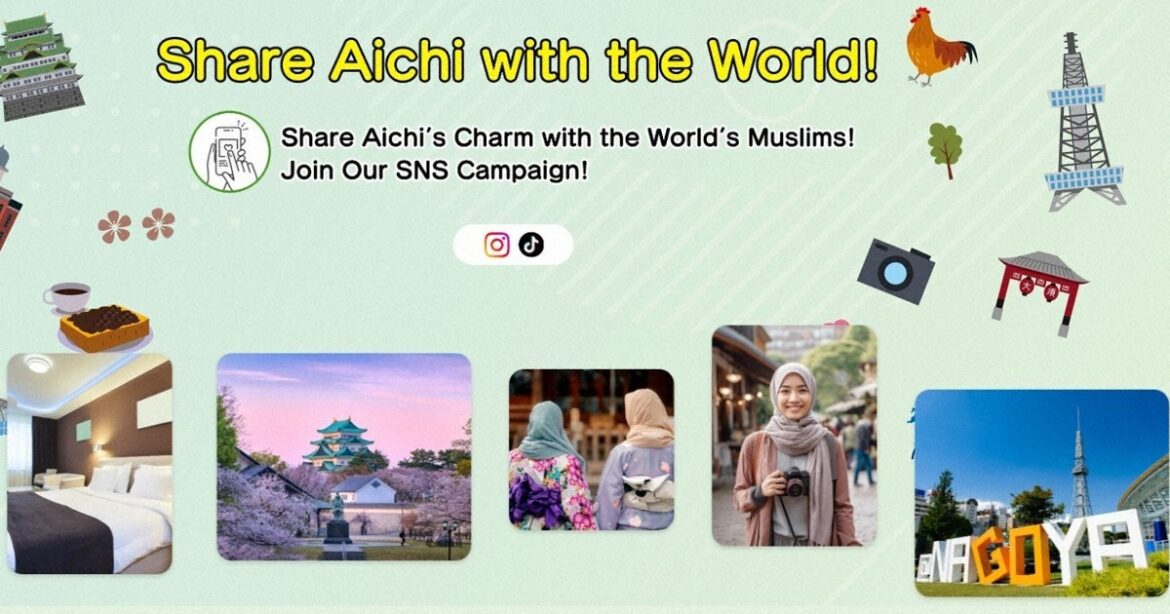
This screenshot shows an “Aichi Now” web page that introduces the Aichi Prefectural Government’s campaign launched Oct. 1 to attract Muslim tourists.
NAGOYA — The Aichi Prefectural Government’s campaign to attract Muslim travelers has faced numerous protests based on misunderstandings, such as it being an “immigration policy.” The prefectural government has since clarified, “This is purely a tourism initiative and not support for any particular religion,” seeking public understanding.
The campaign launched on Oct. 1 says, “Share Aichi’s Charm with the World’s Muslims!” It encourages sharing experiences at local tourist facilities and stores, as well as information on Muslim-friendly meal options, via social media.
Targeting residents in Japan who post by the end of the year, the campaign allocates a budget of 2.65 million yen (about $17,500) to offer prizes, such as accommodation vouchers, to 76 participants.
‘Aichi Prefecture will be taken over by Muslims’
When announced on the prefectural government’s website, protests arose, with complaints and questions including, “It will lead to immigration,” “Why only Muslims?” and “The project should be suspended.” By noon on Oct. 15, 443 emails and 76 phone calls had been received, with the majority being critical.
On social media, posts such as “Aichi Prefecture will be taken over by Muslims if left unchecked” and “I don’t think it’s necessary for the prefecture to conduct a campaign targeting a specific religion” have been spreading.
An official at the prefectural government’s international tourism convention division stated, “There is a misunderstanding.” As part of its inbound tourism strategy, the prefecture has conducted numerous initiatives, targeting regions such as Asia and America. For instance, last fiscal year, 4.64 million yen (about $30,700) was allocated for attracting individual travelers from Thailand, including participation in a local travel expo.
‘To ensure a pleasant tourism experience’

Aichi Prefecture’s map for Muslim tourists is seen in Nagoya’s Naka Ward, Oct. 15, 2025. It was first created in 2019 and updated in 2021. (Mainichi/Shinichiro Kawase)
Regarding the current campaign, the official explained its significance, citing that Muslims have dietary restrictions and require prayer spaces essential for worship, stating, “It’s about familiarizing them with the environment in the prefecture to ensure a pleasant tourism experience.” Previously, the prefectural government had created a Muslim tourist map introducing halal-certified and prayer facilities.
In 2024, the Japan Tourism Agency created a “vegetarian, vegan and Muslim hospitality guide” to improve the environment for accepting inbound tourists with diverse religious and cultural practices. In Fukuoka Prefecture, a handbook for lodging and dining businesses has been developed, reflecting many local governments’ efforts to attract Muslim tourists.
Protests against municipalities based on misinformation about foreigners
Meanwhile, there have been a spate of protests in Japan against municipalities based on misinformation about foreigners. In Kitakyushu, false information spread on social media in September claiming, “the city had decided to implement Muslim-friendly school lunches,” prompting the municipal education board to hold a press conference to deny the claims.
In a project by the Japan International Cooperation Agency that designated four Japanese cities as “hometowns” for African countries, the cities received protests based on misunderstandings like “immigrants will flood in,” leading to the project to be scrapped.
(Japanese original by Shinichiro Kawase, Nagoya News Department)


AloJapan.com